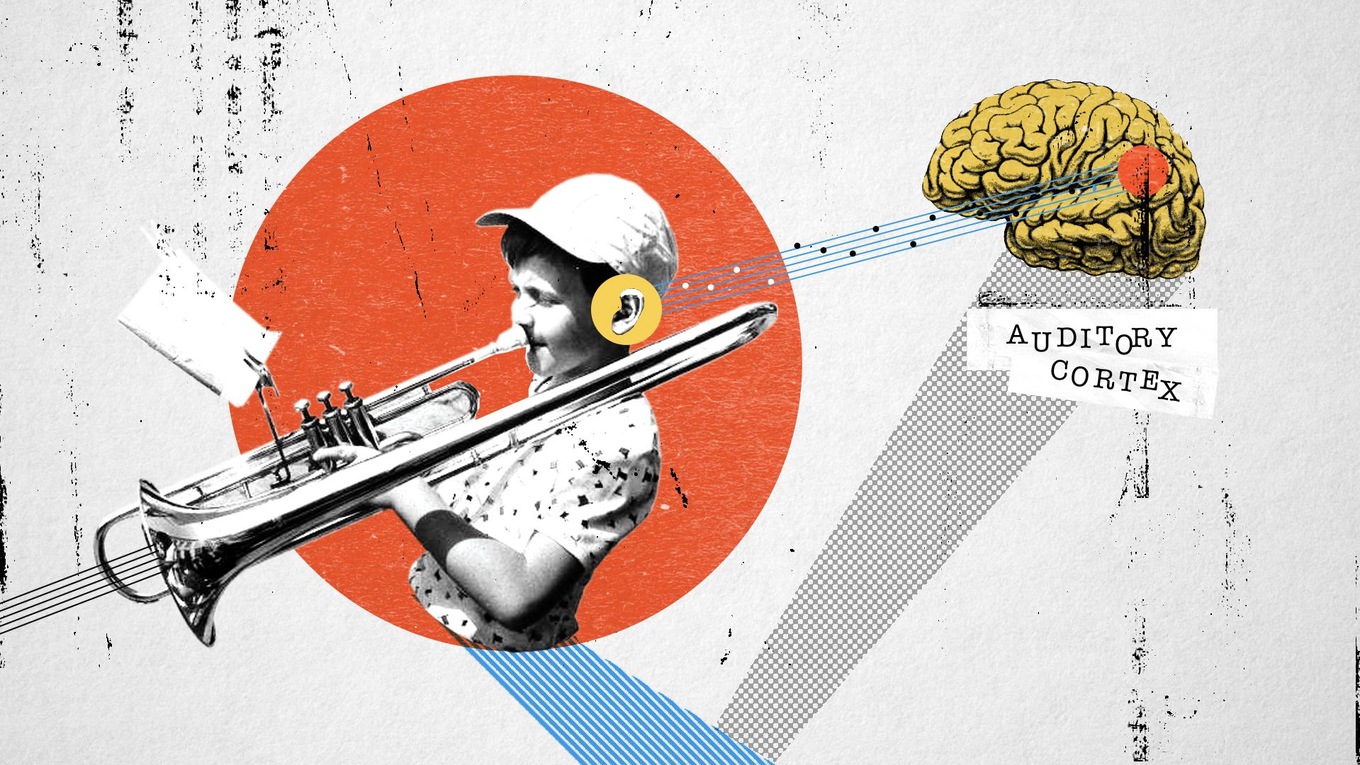Each year, CBC Music in association with MusiCounts — the charity of the Juno Awards — launches a contest to engage music classes across the country with Canadian music. It’s called the Canadian Music Class Challenge. You can sign up for the 2017 Challenge now.
While many have debunked the theory that playing Mozart for your child can lead to increased brainpower, there is much more concrete research that proves learning to play music at a young age can enhance a child’s mind.
Below, we’ve detailed just how participating in music classes can improve children’s brains.
1. It accelerates a child’s ability to process sound
An ongoing research group at the Brain and Creativity Institute at the University of Southern California has so far found some evidence that children who learn and practise music are able to develop a part of their brain that processes sound faster than children who don’t play music.
After two years of following different groups of children — some who are learning music and some who aren’t — the group of children learning music were “more attentive to the melodies” of the music that researchers played for them. Specifically, they “had a stronger brain response to differences in pitch compared to the children in the other groups.” This is thanks to the development of the auditory pathway, the part that connects our ears to the auditory cortex, the sides of our brains where we process sound.

2. It can lead to better language, reading and communication skills
Many have extended the theory of a child’s heightened ability to process sound to other developments as well, which include literacy, reading and communication. Since music in general stimulates the auditory system in the brain, its maturation through learning music can also affect the speed at which a child can process similar skills in the aforementioned areas. Some have even concluded that music training helps improve math skills.
3. It can also lead to better verbal memory
Research done by the University of Michigan tested young musicians and non-musicians to see whether practising music also improved memory. They tested the two groups by presenting a list of words orally to each group and asking them to recall as many words as they could from the list afterwards. The results showed that the group of musicians were able to remember more words than the other group.
4. But one must be active to reap these benefits
Another study at Northwestern University showed that, while these brain developments in children are definitely possible, children must be actively participating in music classes in order to see the results. The research concluded that “students who played instruments in class had more improved neural processing than the children who attended the music appreciation group.” It means that factors like attendance and active participation are the only ways a child can successfully develop these skills — simply enrolling them in such classes won’t do the trick.
– Matter by Melody Lau from CBC Music
Visit author’s site: https://www.cbcmusic.ca/


